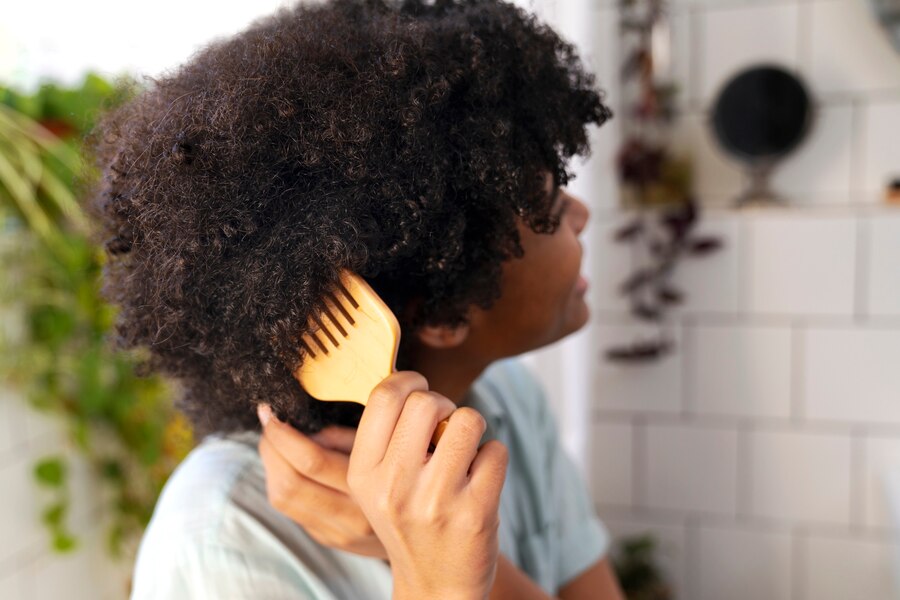Why Is My Hair Falling Out? Understanding Hair Loss & Its Causes
Hair loss is a common concern affecting millions of people worldwide. Whether it’s a few extra strands in the shower or noticeable thinning, losing hair can be distressing. While some shedding is natural, excessive hair loss could indicate an underlying issue. This article explores the causes of hair loss and how to address them.
The Hair Growth Cycle
Before diving into the causes, it’s important to understand the hair growth cycle. Hair grows in four phases:
- Anagen (Growth Phase): This phase lasts 2-7 years, with hair actively growing.
- Catagen (Transition Phase): Lasting about two weeks, hair follicles shrink, preparing to shed.
- Telogen (Resting Phase): Hair remains in place but is not actively growing for about 3 months.
- Exogen (Shedding Phase): Old hair falls out, making way for new hair.
It’s normal to shed 50-100 hairs daily, but if you’re noticing excessive loss, one of the following factors might be the cause.
Common Causes of Hair Loss
1. Genetics (Androgenetic Alopecia)
One of the most common causes of hair loss is hereditary baldness, known as androgenetic alopecia. This condition affects both men and women and typically follows a predictable pattern—receding hairline or thinning at the crown in men, and overall thinning in women.
2. Hormonal Changes
Hormones play a crucial role in hair health. Changes due to pregnancy, childbirth, menopause, or thyroid disorders can trigger hair loss. Postpartum hair loss, for example, is common due to fluctuating estrogen levels, but it often resolves within a few months.
3. Stress and Anxiety
Emotional and physical stress can push hair into the telogen phase, causing excessive shedding—a condition known as telogen effluvium. Major life events, surgery, or severe illness can also trigger this temporary form of hair loss.
4. Nutritional Deficiencies
Lack of essential nutrients like iron, vitamin D, biotin, and protein can weaken hair follicles, leading to excessive shedding. An unbalanced diet, rapid weight loss, or restrictive eating habits may contribute to hair thinning.
5. Medical Conditions and Medications
Several medical conditions can cause hair loss, including:
- Alopecia Areata: An autoimmune disorder where the immune system attacks hair follicles.
- Scalp Infections: Conditions like fungal infections or dandruff-related inflammation can weaken hair roots.
- Medications: Drugs for cancer (chemotherapy), high blood pressure, depression, and birth control can trigger hair loss as a side effect.
6. Hair Styling and Chemical Damage
Excessive heat styling, tight hairstyles (like braids and ponytails), and harsh chemical treatments (like bleaching and perming) can weaken hair and lead to breakage or traction alopecia.
How to Prevent and Treat Hair Loss
- Maintain a Balanced Diet: Ensure you get enough protein, iron, zinc, and vitamins to support hair health.
- Reduce Stress: Practice relaxation techniques like yoga, meditation, and exercise.
- Use Gentle Hair Products: Avoid harsh chemicals, excessive heat, and tight hairstyles.
- Consider Medical Treatments: Options like minoxidil (Rogaine), PRP therapy, and hair transplants can help with persistent hair loss.
- Consult a Doctor: If hair loss is sudden, severe, or accompanied by other symptoms, seek medical advice.




